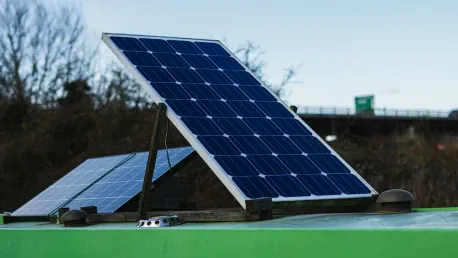
In a world increasingly grappling with climate change and the urgent need for cleaner energy sources, the selection of Dallas-based Jacobs Engineering by Terra Solar Philippines stands out as a pioneering event in renewable energy. The ambitious $3.3 billion Terra Solar Project is set to become the

Rural Virginia is at a crossroads, facing a paradoxical situation regarding the development of data centers and solar farms. With a shared goal among state leaders to attract more data centers, a divide emerges on how to power these energy-intensive facilities. Governor Glenn Youngkin and most

In the face of escalating climate change and the urgent need to mitigate environmental impacts, decarbonizing heavy-duty industrial processes such as mining has risen to prominence as a critical challenge. Various industries, especially those with substantial energy demands like mining, are under

Recent flooding observed during Storm Bert has sparked a widespread discussion on its potential link to climate change. The storm's relentless downpours and resulting high waters have raised critical questions about whether such extreme weather is becoming more common due to a warming climate.

The unexpected surge in solar power adoption in Pakistan has significant implications for global energy demand projections. This phenomenon highlights the inaccuracies in traditional energy modeling and forecasts, particularly in developing countries. Pakistan's energy crisis, driven by high costs

The International Association of Machinists and Aerospace Workers (IAM) is taking proactive steps to address the dire consequences of global warming on industries and labor. Recognizing the severe implications of climate change on working conditions, community health, and job security, the IAM is